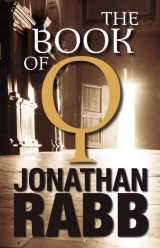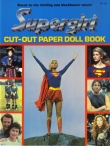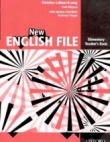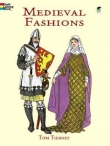
Текст книги "The Book of Q"
Автор книги: Jonathan Rabb
Жанр:
Триллеры
сообщить о нарушении
Текущая страница: 2 (всего у книги 28 страниц)
They moved past a second burning house, out beyond the buildings to an open field, the sound of boots on grass, two sets in perfect synchrony, the pace even, deliberate. The glow of flame receded behind them, moonlit darkness swallowing them as they continued on. Neither said a word, each finding what they needed in the plodding motion of the other. Several times, they came across large roads, sometimes taking them, sometimes not. It was always her choice, her decision. He would simply follow, happiest when back into the mindless rhythm.
When she finally spoke some two hours later-her voice barely a whisper-it seemed to echo throughout his entire body.
“It’s not far from here.” The sound caught him off guard, the rote motion of his legs jarred by the intrusion. He nodded and regained his pace.
Ten minutes later, she stopped. They stood at the lip of a wide patch of open land, perhaps two hundred yards in each direction, untouched as far as the eye could see. A line of shadow defined the far edge-trees, he guessed, thick wood beyond. She started out into the field, he at her side, the center of the far shadow growing taller with each step. It took him a minute to realize that there was something in the middle of the field, its outline ever clearer as they drew closer. Twenty yards from it, they stopped.
Gazing down at them was the perfect facade of a church. No dangling roof, no blown-out walls. Perfect. It was no more than three stories high, a vaulted roof with bell tower rising into the sky, its stone glistening in the moon glow. Exactly when it had been built was impossible to say. Fifty, a hundred years ago. Perhaps more. Too little had changed in the way the men of Bosnia built their churches to make an accurate guess. Weathered was the best one might do. Tucked in at the center stood two large rectangular doors, rusted iron rings on each. Petra made for the one on the right, Pearse a few steps behind her.
The inside had not fared as well. Shafts of moonlight poured in from several rows of glassless windows, enough to see that the pews had long ago been ravaged for firewood, the stone floor strewn with bits and pieces unworthy of plunder. As with anything roofed in the region, piles of straw lined the walls, vestiges of onetime tenants, though the most popular routes of escape had drifted farther and farther from the church, thus releasing it from any obligation of sanctuary. A large iron chandelier hung at center, empty sockets, glints of glass below the only remnants of long-ago-shattered bulbs. A second, smaller lamp swung above the altar at the far end, its long link chain twisting in the air from some unseen draft. Above it, segments of the phrase “Benedictus qui venit”were chiseled in thick block letters.
The overall structure of the church, however, remained unscathed, a few chipped pieces of brick and stone here and there, but little else in the way of damage.
“No one comes here anymore,” she said, “not even the refugees.” She had found something on the ground and was trying to make it out in the ivoried light.
“Incredible that it’s survived.” He’d begun to slide his fingers along the wall, cold, smooth stone with a hint of moisture.
“Not so incredible. Destroying it would be sacrilege.”
“‘Sacrilege’?” The word seemed strangely out of place. “That didn’t stop them in Prjac.”
She tossed the piece back to the floor. “That was a Catholic church. Those, they take pleasure in destroying.”
“And this is an Orthodox one?” he asked, pointing to the inscription above the altar. “With the Benedictus etched in stone? I don’t think so.”
“No, this part is Catholic.” She saw the confusion on his face. “It’s the foundations that are a little unusual. Underneath us is an old Orthodox church, most of it destroyed in the time of the last Turks. Enough of it survives, though, to keep it holy ground. Under that, the remains of a mosque from the time of the Bogomils, also holy. All in layers, one on top of the other. The perfect model for how we used to live. Now, destroy one, destroy them all. Sacrilege for whoever fires the rocket.”
Before he could reply, she was making her way toward a small archway at the far left of the altar. He fell in behind her as she disappeared down a narrow set of stairs, the white stone spiraling into darkness.
The light quickly vanished. Hands against the wall, he moved cautiously down the steps, the sound of her in front of him just enough to give his groping some direction. Once or twice, the steps narrowed, breaking his rhythm. He would stop, toe his way forward for a few steps, then continue on.
“Watch your head.” She was farther along than he expected, her voice a good fifteen feet beyond but only slightly below him. He guessed there were only a few steps left, and placed his hand directly in front of him. It was then that he remembered his shoulder, a momentary twinge from the tightened muscle. He had no time for it as his fingers met stone and began to trace the curve of an archway, his feet finding ground at the same instant. He ducked under his hand and continued to move slowly, his eyes growing more and more accustomed to the darkness, bits of wall and floor taking shape.
His victory was short-lived, as a bright light suddenly flooded the area in front of him, its source a flashlight in her hand.
Shielding his eyes from the glare, he noticed the walls were of a different color here, whiter, with more texture. And whereas the cut of each stone had been precise and rectangular in the church above, here they were large irregular slabs that undulated from side to side and top to bottom. The ceiling was no more than seven feet high, its smooth surface and neat brickwork a clear indication of its Catholic lineage above, an intrusion over the small Orthodox chapel in which they now stood. Nothing in the space, however, hinted at its onetime religious calling, save for a few fragments of inscription along the top of each wall, the letters Cyrillic, the words too far gone to make out. More straw, a torn blanket.
“I keep this here,” she said, balancing the flashlight on a clump of stones. He said nothing. For almost a minute, neither said a word. Finally, she nodded. “Maybe I’ve been lucky no one takes it.” It was only then that he realized they were alone. No midnight jaunts, no explosions, no fevered walks to distract. Alone. He could see she had sensed it, too.
He remained by the wall; when he didn’t answer, she turned and pulled the hair from her face. “You’ve decided to go.”
“What?” The question caught him off guard.
“To go. Back to the States.”
He looked at her for several moments before answering. “I haven’t decided anything.”
“Time to become a priest.”
Again he said nothing.
“You don’t have to explain,” she added, now more tender. “I’d go, too, if I could.”
“Really?” His tone was dismissive. “No, you wouldn’t. None of you would.”
“And because of that, you think you should stay? Because we have no choice.” She shook her head. “It’s not a good answer.”
“I’ve stayed because I came here for a reason.”
“The reasonyou’ve stayed has nothing to do with why you came here.” No anger, no reprimand. She watched as his gaze drifted from hers. “We both know that. Otherwise, you would have left a long time ago with all the other well-meaning boys who’d seen enough after two weeks. No, you stayed because you thought you were stronger than they were, that your … faith could somehow withstand more. The final test before ‘taking the plunge.’ Isn’t that what your father called it?”
He looked over at her.
“Well, my faith lost the battle with this place a long time ago.” She held his gaze. “And now, I think, you’re wondering if yours has, too. Better go before it’s too late.”
Again, the room fell silent. He wanted to answer but couldn’t. No way to defend against the truth.
After nearly a minute, he spoke: “So what do I do? Accept it?”
“No.” She paused. “I don’t know.”
Pearse leaned his head against the wall. “That’s not very helpful.”
She kept her eyes on him. “You could find something else.” She waited, then turned and crouched by the pile, readjusting the light on top, her back to him. “Maybe you already have.” Her head tilted to one side, her hair cascading to her shoulder, neck bare, half shadow, half light.
“You know I have,” he said.
She brought a few stray rocks to the top of the pile, never catching his gaze. “And that’s the problem, isn’t it?”
He remained by the wall. “What do you want me to say?”
She waited, then turned to him. “Does that matter?”
“Yes. Of course that matters.”
“Why? We both know it won’t make any difference in what you do.” She waited. “Or in what I do. I can’tleave here, Ian. You know that.”
“I’m not asking you to.”
“Yes, you are. It’s either ‘Come to the States and save me from being a priest’ or ‘I’m on the next plane without you.’”
“That’s not fair. It’s not about saving me from anything.”
“Then what is it? If that’s what you so desperately want, then what is this all about?” Again she waited. “Something’s happened here-we both know that-and I’m sorry that everything else isn’t fitting neatly into place. I’m sorry it’s put a kink in your plans. I’m sorry we don’t have the luxury to slip out of here and figure it out. I’m sorry about all of those things. But there’s nothing I can do about them. I’m here, where I haveto be, and you can either stay here with me or you can go. And that’s your choice. I don’t have one.”
Pearse stared at her, more and more aware of the growing tightness in his chest as she turned back to the pile. Slowly, he pushed himself from the wall and moved toward her, all the while his eyes on her shoulders as they gently rose and fell with each breath. He sensed a slight lift in her back as he neared, a hesitation; kneeling down behind her, he eased his arms around her waist. He had never touched her like this before, never been so close as to savor the faint hint of summer rain on her cheek. They stayed motionless, neither seeming to breathe, until, slowly, his lips brushed against her neck. He tasted the residue from the explosion, his chest pressed to her, bodies arching into each other. He began to caress her shoulders, arms, her hands as eager as his own as she twisted to him, their mouths lost in a kiss.
He pulled back. He could feel her breath on his lips, see her eyes peering up at him, uncertain.
“I … can’t stay in Bosnia,” he whispered. “I can’t stand back and watch all of this happen.”
She stared up at him. “I know.”
“No, you don’t. I’m doing the one thing I promised myself I’d never do. I’m going numb. I can’t let that happen. Priest or no priest, I can’t lose that…. And I can’t lose that with you.” He waited. “Do you understand that?”
It took her a moment to answer. “No.” Another moment. “Maybe.” She waited, then leaned into him, as if to kiss him.
“Then why did you bring me here tonight?”
“Because I know you’ll go.” Their mouths were no more than an inch apart. “And this is what I want.” She waited, then slowly drew him into her, a kiss, gentle at first, her hands sliding along his chest, his shoulders. She could feel him struggling to let her in, his need as great as hers, but still he held back. Softly, she slipped her fingers beneath his shirt, the touch of skin on skin enough to cloud his senses, his arms suddenly tight around her. She pulled him closer, his lips now finding her cheek, neck, hands to her thighs as he began to stand, lifting her with him, their bodies knocking against the stones, flashlight tumbling to the ground, light extinguished. Neither seemed to notice as he pulled her legs around his waist, her back up against the wall, hands free to peel away her shirt, his tongue gliding to her shoulders, her breasts. He brought her to the floor, hands untangling clothes, the sudden touch of straw beneath them.
Their bodies stripped bare-his eyes clear enough to find hers in the darkness-he guided himself inside of her. The heat between them rose up through their chests, the taste of exploration on their lips, as he lifted her legs higher, her hands swelling around his thighs, drawing him in. For a moment, they remained absolutely still, the sensation almost too much. Then slowly, they began to move with one another, fingers kneading flesh, lips lost to cheeks, chests, the ache ever more urgent. Time seemed to vanish, waves of sound driving through them, until, in an instant of perfect tension, an anguish spread across her face, eyes ever locked on his, her legs and arms no less insistent with each thrust. Every muscle within him began to tighten, claw for some unknown sanctuary, lose himself within her, as they both cried out, the climax exquisite, bodies shaking, until they released, gasping, breath once again able to subside.
A thin rivulet of sweat slid down his back, arched at his thigh, and dropped to the ground. She began to caress him, ease her fingers through the moistness of his skin. He lifted his head, a sudden burst of cold air on his chest. He stared at her, somehow even lovelier than before. And they kissed.
Burying his brow in her, they drifted off.
Two hours later, he awoke, shrouded in darkness. A sound from somewhere behind him had jarred his eyes open, a scraping of stone against stone, his conscious mind trying to reorient itself. He blinked several times, slowly aware of Petra’s body cradled next to him. He leaned in to kiss her but was stopped short by the repeated sound of scraping. Twisting his head round, he only now became aware of the thin beam of light emanating from the far wall. Slight as it was, it forced a momentary squint.
Petra, still lost in sleep, rolled over and tucked herself into his chest.
The light was coming from below-another set of steps leading down to the onetime mosque. No one comes here anymore, not even the refugees. Again the scraping, a thud, as if the stone had fallen into place. Pearse quietly disentangled himself from Petra and quickly found his pants and shirt. He put them on as the light grew stronger, bobbing, as if finding its way up the stairs. The sound of footsteps crept closer, the glare beginning to fill the far wall. Pearse remained in darkness, the shirt loose on his shoulders as light suddenly broke through, a large figure behind it. Clinging to the wall, he watched as the man headed for the stairs up to the church. He was nearly there when Petra again rolled over, the straw crinkling under her.
Light immediately flashed across the room, Pearse quick to leap from his place, his hands clearly visible in front of him, just in case the man had something more than a flashlight in his other hand. He had been caught in moments like this before; best to play the confused relief worker, hope that his size was enough of a deterrent, that the man was a Catholic, no need for alarm, no need to be seen as anything more than a harmless inconvenience.
Pearse kept his hands out as he talked, moving farther and farther from Petra.
“ Zdravo, zdravo,” he said, continuing in Croatian. “I’m with the Catholic relief mission…. I was separated from my group in Slitna…. I’m just sleeping here for the night. I have papers.”
“Stop.” The light was now aimed directly at his eyes. Pearse blinked rapidly, careful not to make any sudden movements. “Your identification. Slowly.”
Pearse reached into his pocket and pulled out his travel cards. They were slightly mangled but still had all the pretty stamps necessary to convince an interested party. The light fell from his eyes, several seconds before he could focus properly.
“These expired over a month ago.”
The accent was not what he had expected, far too refined for one of the local black marketeers. And far too observant.
Pearse continued to pay the naif. “Yes … I’ve got the others coming, waiting for me in Zagreb.” A lie, but he knew the mention of bureaucracy was the most likely way to deter further probing.
“I see.”
The two stared at each other. Not only had the accent and eye for detail struck Pearse as odd; the way the man was dressed seemed even more out of place. He wore a well-tailored shirt-safari khaki-recently pressed, pants the same. His hair was cut short, tiny blond spikes in strict military fashion. On his belt hung a holster, fine leather that showed no signs of aging. And in his left hand, he carried a small satchel, also leather, also in mint condition. Most startling, though, were the boots. Pearse had seen similar ones sell for five hundred dollars in the States-hardly the type to be found anywhere within a six-hundred-mile radius of Slitna.
“You’d do well to replace them as soon as possible,” the man said, now speaking English, the accent no less disquieting. Pearse thought he saw a glint of self-satisfaction in the eyes, as if the man was quite pleased with himself for displaying such facility. “There are people in this part of the world who would shoot you for such a lapse.”
“Right. Of course.” Pearse knew he had to placate, avoid confrontation. “My mistake.” Again, the two stared at each other, neither moving, until the man slowly nodded. Even then, Pearse’s eyes remained locked on the pair of steely grays less than eight inches from him. Trying to diffuse the moment, Pearse slowly began to inch his way farther out into the room.
The man stepped forward to block his path. For just an instant, the humor seemed to slip from his face, then return with added vigor. “Aren’t you going to finish out the night here?” An awkward silence, the smile back on his lips. “Or have I changed those plans?” Before Pearse could answer, the man’s expression shifted again. No more of the goading, no more of the playful back-and-forth. This time, a cold vacancy Pearse had never seen before.
The man’s head suddenly snapped to the side as a shot rang out, his entire frame collapsing to the ground. The flashlight followed, bouncing along the floor and casting wild shadows before it rolled to a stop. Pearse stood stock-still.
“He had a knife.” Petra’s voice tore through him as light once again filled the space; slowly, he turned. She was standing, naked, gun in one hand, flashlight in the other. He stared at her, unable to focus. “He was going to kill you.”
Pearse watched as Petra slowly placed the gun on the ground. She looked dazed, only now aware of her own nakedness.
Bending down, she began to gather her clothes. Her voice distant, she repeated, “He had a knife.” She put on her shirt. “He would have killed you.” Still disoriented, she slid her legs into the pants.
Pearse could do little more than nod. He had sensed it, but never been so close, never seen the instant of death. After nearly a minute, she moved to the corpse. Before she could kneel down, Pearse pulled her in close. She clutched at him as well, both of them shaking. “I’ve never shot someone like that,” she whispered. “Waited, watched.” They continued to hold each other until she suddenly pulled away. It was clear she wanted to say something. When he tried to ask, she shook her head once. She then knelt down and turned the body over, the eyes staring blankly up at her.
After several seconds, she said, “He’s no refugee.” She continued to pat down his pockets. Finding nothing, she moved on to the satchel. Pearse knelt at her side as she undid the leather straps.
“Thank you.”
She stopped, her eyes still on the satchel. After a moment, she flipped open the front and reached inside.
“His whole face just changed,” said Pearse. “I’d never seen that.”
“He probably wanted you to know he was going to kill you,” her voice far more animated than only moments before. “Some people find pleasure in that.” She pulled a hard plastic box from inside the satchel and placed it on the ground. While she played with the clasp, he stared at the body.
The man had an athletic build, powerful arms and hands, his grip still tight around the hasp of the knife. Gazing at the small blade, Pearse realized how close he had come to the same fate. Not that the last three months hadn’t forced him to confront his own mortality, but those occasions had been unspecified, bullets strafing in wild assault. The man lying in front of him was far more personal. A single knife meant for him.
The question suddenly dawned on him. “Why did he think he had to kill me?”
Petra was struggling with the box, using her own knife as a wedge. With a final dig, the top snapped open, a strange odor wafting from inside. “It’s Bosnia. It doesn’t take much thought.”
The rationale didn’t ring true. “No, you saw him. He made a choice.”
Petra was too preoccupied with the contents of the box to consider an answer. Inside were three rectangular piles of parchment, each one held together by a leather string sewn into the far left edge of the stack. Held together by a primitive form of binding, the bundles lay cracked and yellowed, though virtually intact. Odd symbols filled the pages, neat rows of a language neither of them had ever seen before. Petra pulled back the first leaf of the center pile, the parchment gritty to the touch, unwilling to be moved more than an inch or two. Even so, she was able to make out similar rows below, more of the incomprehensible text.
“He was obviously protecting something,” she said, trying her luck with the second and third piles. There, too, the parchment refused to budge more than a few inches. “Have you ever seen anything like this?”
Putting his own questions aside, Pearse stared hard at the three little stacks. Scanning them, he noticed a tiny mark at the top right-hand corner of each page: a triangle, one half of it darkened, the other half empty. As far as he could see, there was one on every page. He was about to point it out to Petra, when the sound of a voice crackled through the room. An amplified voice.
“ Come va?”
The radio was strapped to the dead man’s waist, silent again, waiting for an answer. When none came, a second wave of Italian erupted.
Petra shut the box, picked it up, and headed for the stairs. Pearse was right behind her, no need to be told that they had outstayed their welcome. Reaching the top, she turned off the flashlight and sped across the pewless church; they stopped at the doors, listening for anything beyond. Hearing nothing, they slipped out and crouched low, making their way across the wide expanse of field, intent on any sound, any movement around them. At the road, they found a Jeep. Empty. All was still, the eerie quiet of a 4:00 A.M. sky.
The hours they had spent with each other slipped quickly from their minds, survival once again the only thought.
“Parchment, old paper … yes,” said Mendravic, his bandaged leg up on a chair, a set of headphones to his ears. Petra and Pearse sat at a table in the new communications center, the plastic box between them. Mendravic nodded as he spoke into the microphone. “Yes, at Saint Hieronymus…. I would say three, four in the morning…. The reason is unimportant. Just tell me if you’ve– … Fine, fine. Do videnja.” He turned to the two at the table and shrugged. “He has no idea what they are, either. He has a contact in Zagreb. He’ll call back in an hour.”
They had kept most of the details from Mendravic, including the appearance of the man: the two of them had been to the church; they had found the box. End of story. Not that Mendravic was anxious for specifics. He had far more pressing matters to deal with this morning. The body count was relatively small: six children, five women. Still, they needed proper burial. A priest had to be found. A few minutes for the strange stacks of parchment were all he could afford.
Pearse stepped outside. The day was already hot, cloudless, no hint of the autumn weather they had been promised for the last two weeks. It would be oppressive by noon. Petra waited in the doorway, her eyes fixed on him.
Without turning around, he said, “Come home with me.” He waited, hoping for an answer, knowing there would be none. “No. I don’t suppose that’s the way things work out.” He turned to face her.
“Not with a priest.” For some reason, she smiled.
He couldn’t help but smile, as well. She stepped toward him. They started to walk. “Things change,” he said.
“No, I don’t think they do. I have to be here, and you …” She stopped and looked up at him. “You don’t. We’ve been down this road, I think.”
He nodded slowly.
“You have to go. And you have to go today.” In a sudden burst of movement, she took him in her arms, her head tight to his chest. He wrapped his arms around her, pulling her in closer. They stood that way for several minutes, neither saying a word.
Finally, he whispered, “I have to know you understand,” the words getting caught in his throat.
Still at his chest, she brought her hand to her face, then pulled away. Even through the half smile, he could see the moistness in her eyes.
She shook her head. “You don’t get that one.” She breathed in heavily, then took another step back. “You have to go today. That’s what I want. Do you understand?”
Now it was Pearse who was doing all he could to stem the tears. Again, he nodded.
“I’m sure you can find a transport out of Zagreb tonight,” she said. “Salko can arrange it.” Without waiting for him, she turned and started back.
He was about to follow, when the sound of a helicopter rose in the distance. Pearse cleared his eyes and looked up to see the tiny bird lift above the horizon.
In his three months in Bosnia, he had never seen one, told they were too easy a target for would-be snipers, especially in broad daylight. Yet this one was flying in untouched, making for a large field just the other side of Slitna’s few remaining buildings. Petra watched, as well. Mendravic was now in the doorway, his hand trying to block out the sun. As the helicopter began its descent, the older Croat limped out into the street. Making his way past Petra, he motioned for her to wait, the same for Pearse as the aircraft set down.
It took Mendravic several minutes to get within shouting distance, his hair blown wild by the slowing propellers. Petra pulled up to Pearse, both watching as two men jumped from the cockpit, each one ducking under the blades, each in sunglasses and gray suit. They approached Mendravic, the taller of the two pulling some sort of identification from his pocket. Mendravic examined the card, nodded, and began to lead them back toward town. As they drew closer, he signaled for Pearse and Petra to join him.
“These men have come about the box you found,” he said, still shouting over the noise of the engines. “They’re from the Vatican.”
A kind of reprieve for both, they nodded and continued toward the house.
“We’re eager to get it back,” said the taller man as he removed his glasses, “if, of course, it turns out to be what we’re looking for.”
It suddenly struck Pearse that Mendravic had sent the message less than fifteen minutes ago. How had these men known to come here? “And that would be what?” he asked as they continued to walk.
The man turned to Pearse. “Pardon?”
“The pieces of parchment. What exactly are they?”
He stared at Pearse for a moment. “I take it you were the one who found them.”
“Yes,” he answered. “And the woman.”
The man glanced at Petra. “I see.” He then turned his attention back to Pearse. “You haven’t looked through them, then?” They neared the house.
“We tried,” Pearse replied. “None of us is familiar with the-”
“Odd symbols?” the man offered.
Pearse nodded. “Yes.”
“I see.”
“They’re in here,” said Mendravic, leading the way through the door. The man kept his eyes on Pearse until, nodding, he stepped inside.
The box sat open on the table, the shorter man quick to begin examining its contents. Pearse stayed by the door. “The Vatican,” he said. “That’s a long way to come. And on such short notice.”
The taller man kept his eyes on the activity at the box. “Yes. Yes, it is.”
“Considering we radioed less than fifteen minutes ago, I’d say remarkable.”
“Yes.” He paused, then turned to Pearse. “We picked up your transmission on our radio. In the helicopter.” His delivery betrayed no emotion. “Quite lucky, I suppose.”
“Quite,” replied Pearse.
For the first time, the man smiled. No warmth, just a curling of lips. “As I said, we’re eager to get it back.” The practiced smile remained. “How again did you say you found the box?”
“A church,” answered Pearse, his eyes locked on the man’s. “Saint Hieronymus.”
“Just you and the woman,” he pressed, his tone suggesting he knew far more about last night than he was saying. Pearse recognized the threat.
“Yes,” he answered, his eyes momentarily to Petra. She nodded.
“Church documents,” the man said. When Pearse didn’t answer, he added, “You asked what they were. Language, not symbols.”
As much as every instinct told him to hold back, Pearse couldn’t seem to let it go. “Funny that they should end up in an abandoned church in the middle of a war zone.”
“Yes,” the man replied, watching as his partner carefully leafed through a few of the pages. “They were stolen from the Vatican Library several months ago. We were told they had resurfaced on the black market here.”
“I see.” Pearse could sense Petra’s gaze on him, but he chose to ignore it.
“Nasty business, the black market,” the man continued. “People getting killed over a few pieces of meat.” Again, he turned to Pearse. “How lucky for you that you didn’t run into anyone at that church.” He kept his eyes on him for another few seconds, then turned his gaze to his colleague, who nodded and shut the box. “And it looks as if you won’t have to worry about it anymore.” He picked up the box and moved to the door, Pearse stepping out of the way as the two men approached. “Best for everyone that way, I would guess.” Another thinly veiled threat. The man stopped, looked back at the room, then at Pearse. “So much else here that demands your attention.” Another smile before he followed the smaller man out into the street.
Pearse watched them as they went. A moment later, Mendravic was by his side. “You can be very stupid, Ian.” Pearse now looked at his friend, whose eyes remained on the two departing figures. “I have no idea what was in that box, but you don’t provoke men like that.”








